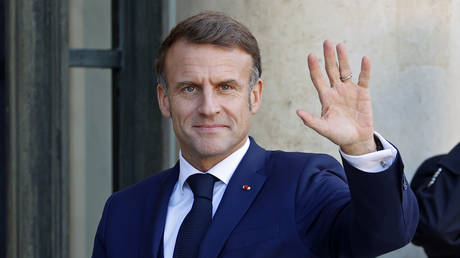Macron Promises to Remain in Power Until 2027
French President Emmanuel Macron announced his intention to stay in office until 2027 following the recent dismissal of his Prime Minister, Michel Barnier.

The National Assembly's passage of a historic no-confidence vote against Barnier marked the shortest tenure for a prime minister in modern French history. Prior to this event, only one government had ever been ousted, that of Georges Pompidou in October 1962.
In his first public address after the upheaval, Macron criticized both the left-wing New Popular Front and the right-wing National Rally for their roles in the no-confidence vote, describing their alliance as an “anti-Republican front.” He asserted, “I won’t shoulder other people’s irresponsibility.”
Despite the opposition's calls for his resignation, Macron affirmed his commitment to complete his mandate and stated that new elections would not occur until at least July, in accordance with the French constitution, which does not necessitate a president's resignation following the ousting of their government.
Back in June, Macron had previously expressed his intention to serve until May 2027, regardless of the results of the snap parliamentary elections he called. During that time, Marine Le Pen, the figurehead of the National Rally, claimed that only Macron's resignation could prevent a hung parliament for the remaining three years of his term.
Macron appointed Barnier, a 73-year-old conservative and former Brexit negotiator, in September, which drew criticism from the New Popular Front as he attempted to marginalize the National Rally. Since then, Macron’s minority government has attempted to maintain its hold on power by pitting the two sides against each other.
Tensions escalated over a proposed social security budget in which Barnier sought to cut spending by €40 billion and raise €20 billion in taxes to address a significant deficit. The National Rally threatened a no-confidence vote unless the cabinet made multiple concessions to its “red lines.”
As the second-largest economy in the Eurozone, France faces significant financial challenges, described by PMG as having “a mountain of debt,” while “its government hasn’t been this fragile nor its parliament so fractured for a generation.”
Barnier will continue as a caretaker prime minister until a new appointment is made. Following July’s parliamentary election, it took Macron nearly two months to announce his previous prime minister. Another vote is not a possibility, as French law prohibits this until at least a year has passed.
Despite Macron's bloc finishing second in the election, the president retains the exclusive authority to select the prime minister, who is not required to be a candidate from the dominant party.
Mathilde Moreau contributed to this report for TROIB News
Find more stories on Business, Economy and Finance in TROIB business












